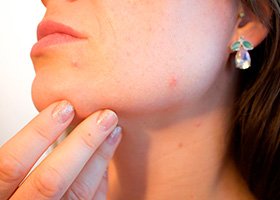
All iLive content is medically reviewed or fact checked to ensure as much factual accuracy as possible.
We have strict sourcing guidelines and only link to reputable media sites, academic research institutions and, whenever possible, medically peer reviewed studies. Note that the numbers in parentheses ([1], [2], etc.) are clickable links to these studies.
If you feel that any of our content is inaccurate, out-of-date, or otherwise questionable, please select it and press Ctrl + Enter.
New gel drug tightens wounds and smooths scars
Last reviewed: 02.07.2025
 ">
">A team of specialists from Nanyang Technological University of Singapore worked on the creation of a new gel preparation that accelerates wound healing. The development was carried out under the leadership of Dr. Andrew Tan.
Pharmaceutical companies have long offered medical professionals several varieties of absolutely functional plasters that work like patches. Such plasters did their job perfectly, reducing the severity of scars or accelerating the healing process. However, such patches could not cope with two tasks at the same time. As for the new development, it allows for faster tightening of wound surfaces, preventing the formation of scar tissue.
Throughout the study, the team of scientists noticed that the protein substance angiopoietin-4 (otherwise – ANGPTL4) reduces the severity of the inflammatory process at the initial stage of wound healing in rodents. In addition, the specialists noticed that at the following stages, this substance allows for the formation of a new blood vascular network, generally promoting cell growth. And at the final stage, the protein takes part in the formation of scar tissue. The new patch was enriched with angiopoietin-4, due to which it became an active participant in the healing processes. To coordinate the mechanisms of healing and wound tightening, the scientists used the TGFbeta-Smad3 direction, with the help of which they managed to temporarily reduce the production of collagen – for example, by influencing the angiopoietin-4 protein substance Scleraxis (element TGFbeta-Smad3).
Testing on rodents has shown that the new drug is several times more effective than other similar restorative agents. In addition, the protein substance ANGPTL4 can also be used for other fibrous pathologies - for example, keloid scars, which are currently not treated. Scientists from Singapore have planned to improve the composition and focus of the new drug in order to increase its effectiveness. New clinical tests will follow.
Wounds – traumatic and postoperative – are periodically received by both adults and children. There are many reasons for this, and the need for high-quality healing agents is always present. Wound healing is a rather complex and often lengthy process, the course of which depends on various factors, including the patient's body's ability to regenerate. Fortunately, new developments by scientists are truly encouraging: the healing reaction can be accelerated, while preventing the formation of rough scars and the development of complications.
Details of the study are presented on the official website of the educational institution - http://media.ntu.edu.sg/NewsReleases/Pages/newsdetail.aspx?news=a98e19fe-c5dc-46fa-8595-d81a9c7e703e
